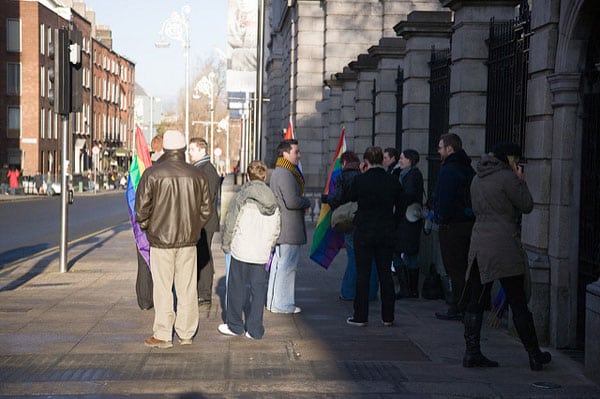
July 16, 2018; Rewire and LGBTQNation
With all the turmoil and angst that has been pulling the attention of the American people from one critical issue to another, it is easy to lose track of some important issues. Slipped into a Health and Human Services funding bill and passed on an almost totally partisan vote (with one Republican “no”) was an amendment that would allow social service agencies that receive federal funds to discriminate in adoptions and foster care placements based on an agency’s sincerely held religious beliefs or moral convictions. Heron Greenesmith, writing for Rewire, describes it aptly.
The amendment, proposed by Rep. Robert Aderholt (R-AL) would prohibit federal, state, or local agencies from taking any action against a child-welfare organization, agency, or staff member who “decline[s] to provide, facilitate, or refer for a child welfare services that conflicts with…the provider’s sincerely held religious beliefs or moral convictions.” The double negatives are confusing. More clearly: This bill would allow the federal Department of Health and Human Services to dock states up to 15 percent of their foster-care funding if they prevent discrimination in foster care or adoption services.
The ramifications of this amendment are many and far-reaching. They touch on the rights of LGBTQ families to adopt and foster children; they touch on the rights of non-Christian families to adopt and foster children; they touch on the rights of single persons (who might be perceived to be gay or lesbian) to adopt or foster children; and there could be implications for family members seeking custody of children who have been removed from parents.
Of even greater concern is what this amendment means for the children themselves. Many of the children in these agencies are homeless or the children of incarcerated parents, and some percent are themselves in one of the LGBTQ categories. This law could put them and their well-being at risk.
In her comprehensive Rewire article, Greenesmith references a report from the Movement Advancement Project (MAP), “Kids Pay the Price: How Religious Exemptions for Child Welfare Agencies Harm Children,” which details some of the possibilities for harm.
Sign up for our free newsletters
Subscribe to NPQ's newsletters to have our top stories delivered directly to your inbox.
By signing up, you agree to our privacy policy and terms of use, and to receive messages from NPQ and our partners.
Children…cannot choose which child placement agencies take their cases. It is the responsibility of the state to ensure that every child serving agency is showing the strictest duty-of-care; that each agency receiving state funding is doing everything in its power to ensure the well-being of children in its charge. Yet these laws allow individual workers and agencies to impose their own religious views on the children in their care, forcing children to pay the price of the discrimination. For example, under such a law, an agency could decide that LGBT children in their care should undergo harmful, discredited conversion therapy—and the agency and worker would still maintain their state license.
The Human Rights Campaign (HRC) covers similar territory in its own report, “Disregarding the Best Interest of the Child: License to Discriminate in Child Welfare Services.”
To be clear, these laws are about discrimination—they permit taxpayer-funded programs to pick and choose to whom they provide services they have been paid by the government to deliver. Proponents of these bills have been very forthright that the bills are a lingering reaction to marriage equality—their purpose is to enshrine discrimination into law by granting state contractors and grantees who provide taxpayer-funded child welfare services the ability to discriminate with impunity in the provision of those services against qualified same-sex couples or LGBTQ individuals who want to adopt. However, some of the exemptions are so broad they’d also allow agencies to object to placement with single parents, parents of another faith or an interfaith couple, and others. Some of these bills are also drawn in such a way that there are implications around the agencies being able to responsibly care for LGBTQ youth, and some would implicate youth’s reproductive rights as well.
The Daily Beast quoted Texas adoption attorney James Greenberg, who labeled this issue a children’s rights issue rather than an LGBTQ one. Greenberg says, “If you’re a child at an agency that won’t place kids with LGBT people, single women, a Muslim family, that really restricts the options for the vulnerable child in your care because there may be plenty of qualified parents willing to take those children in.”
According to MAP, as of July 10, 2018, ten states—Alabama, Kansas, Michigan, Mississippi, North Dakota, Oklahoma, South Carolina, South Dakota, Texas, and Virginia—have “religious exemption laws [to] permit child placing agencies to refuse to place and provide services to children and families, including LGBT people and same-sex couples, if doing so conflicts with their religious beliefs.” With Congress and states eagerly passing laws that enshrine discrimination in the name of religious belief and religious morality, who will speak out and stand up for the vulnerable? How will you answer that question?—Carole Levine
This article has been altered from the original to address an editing error that did not clearly attribute a quoted section.













